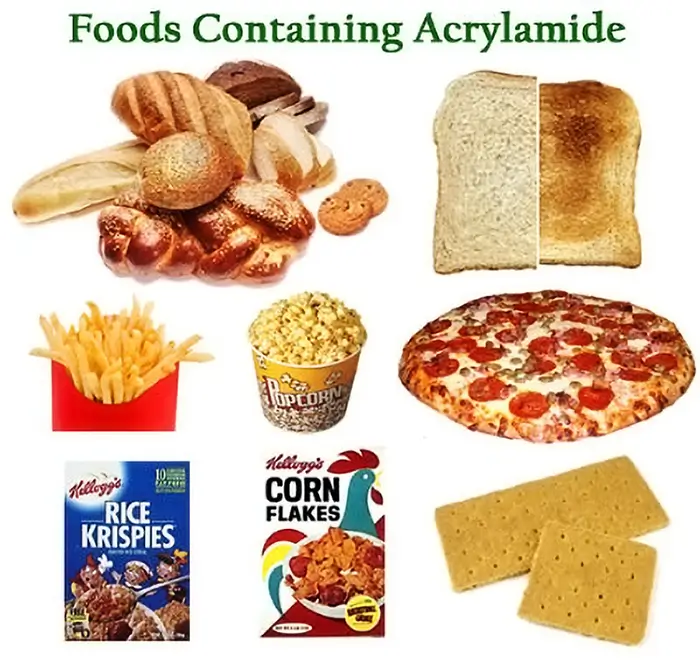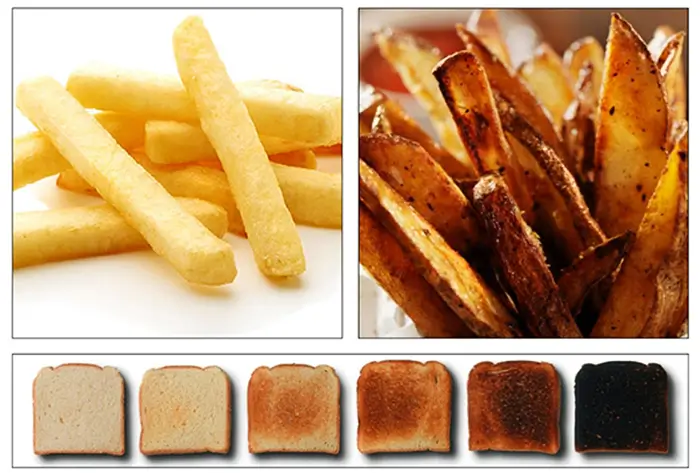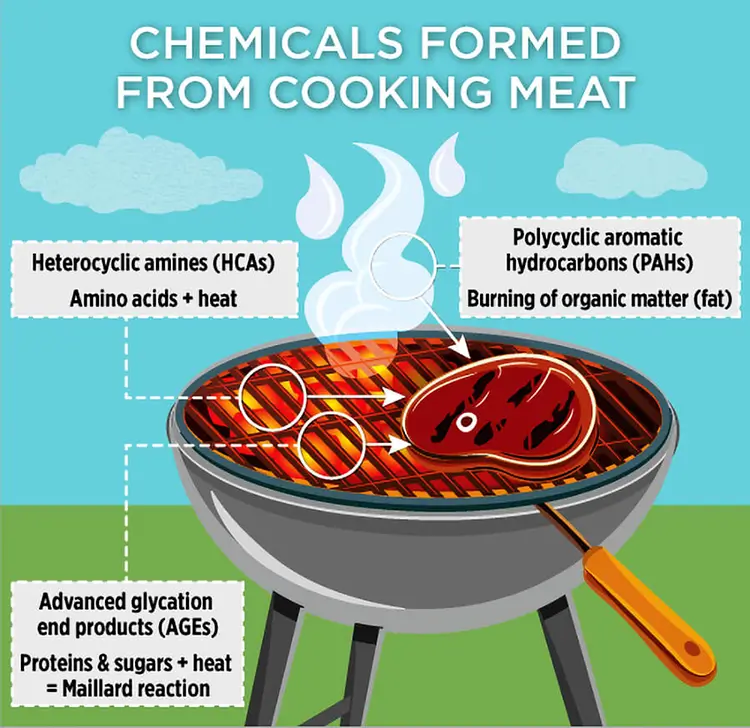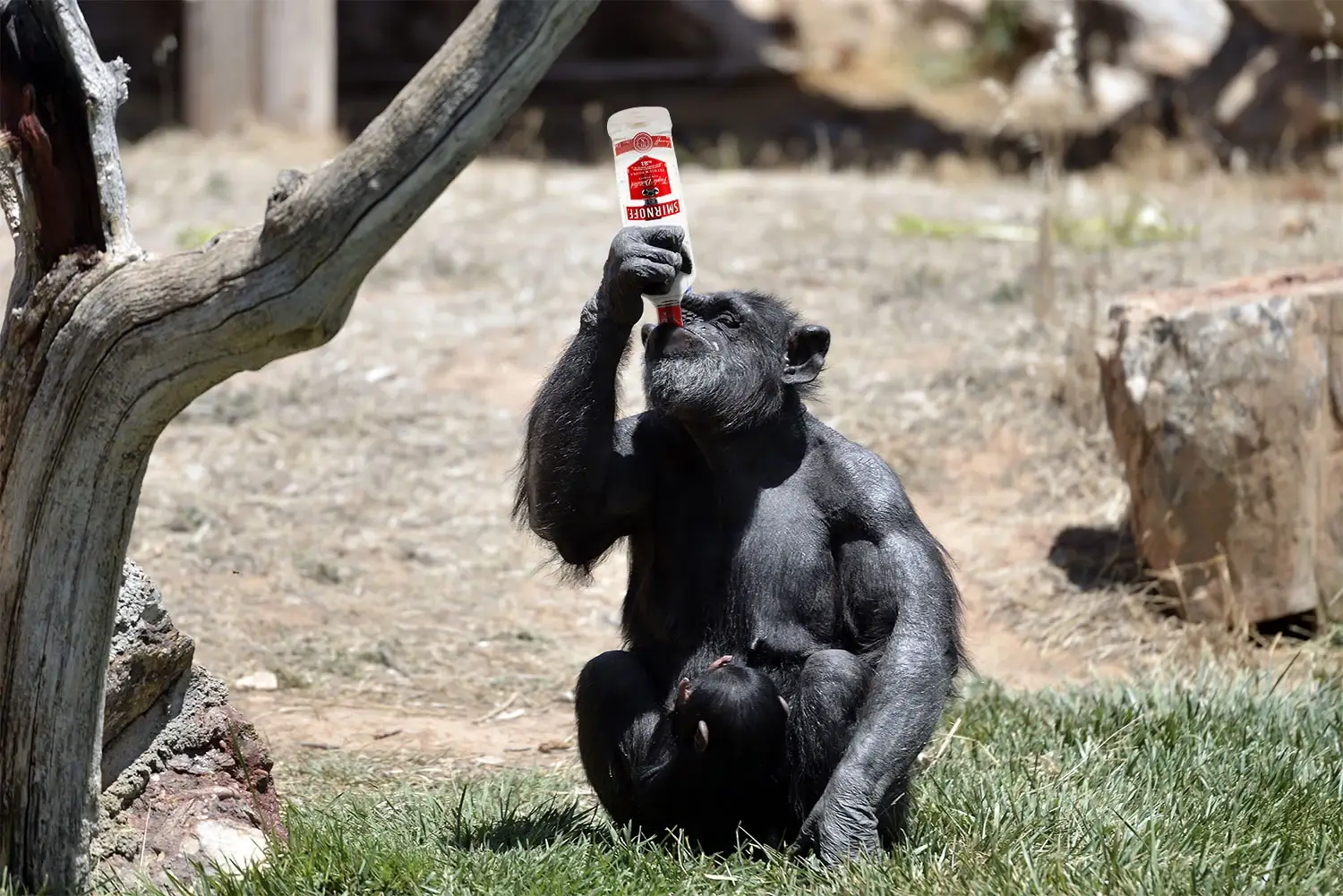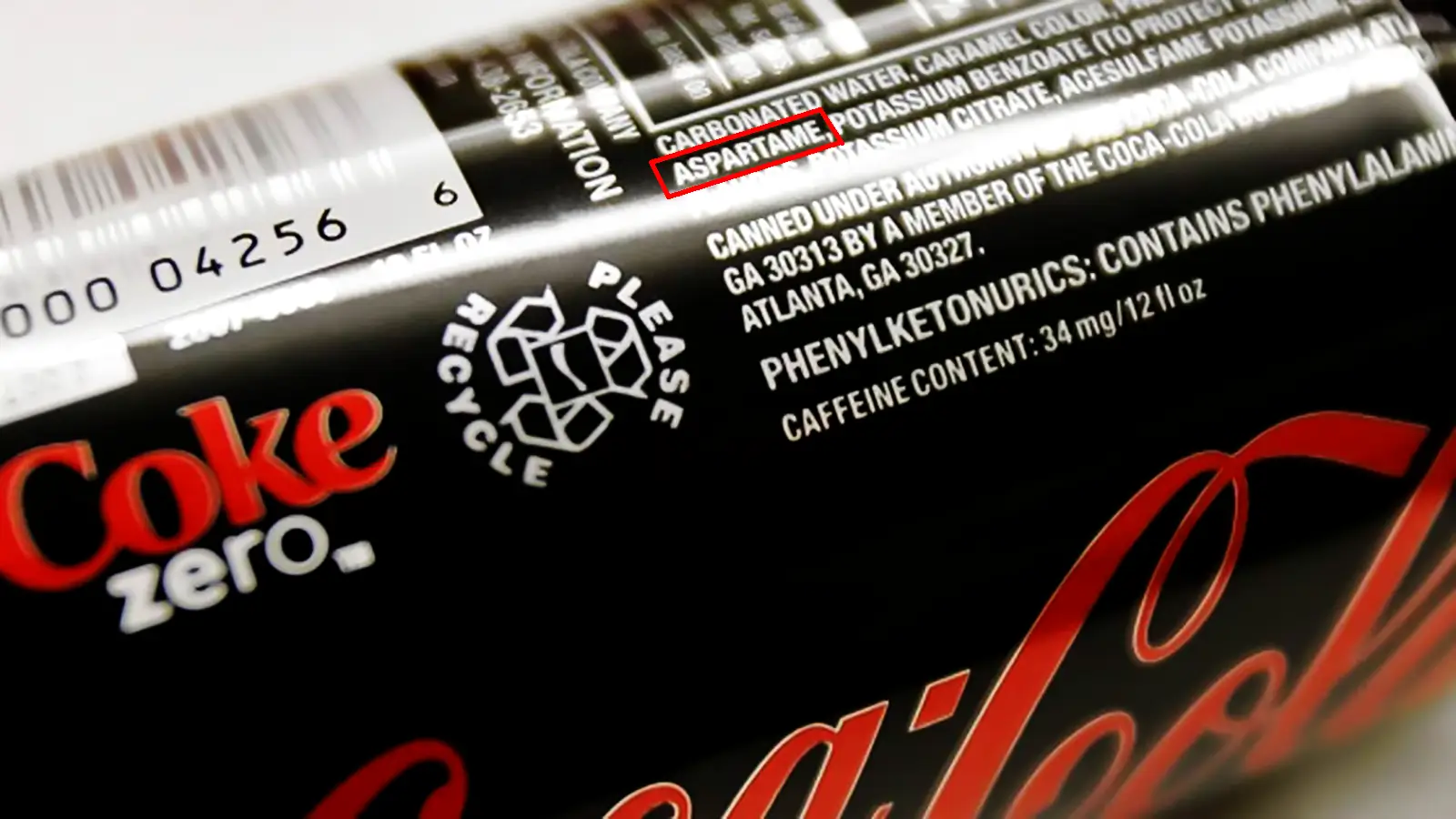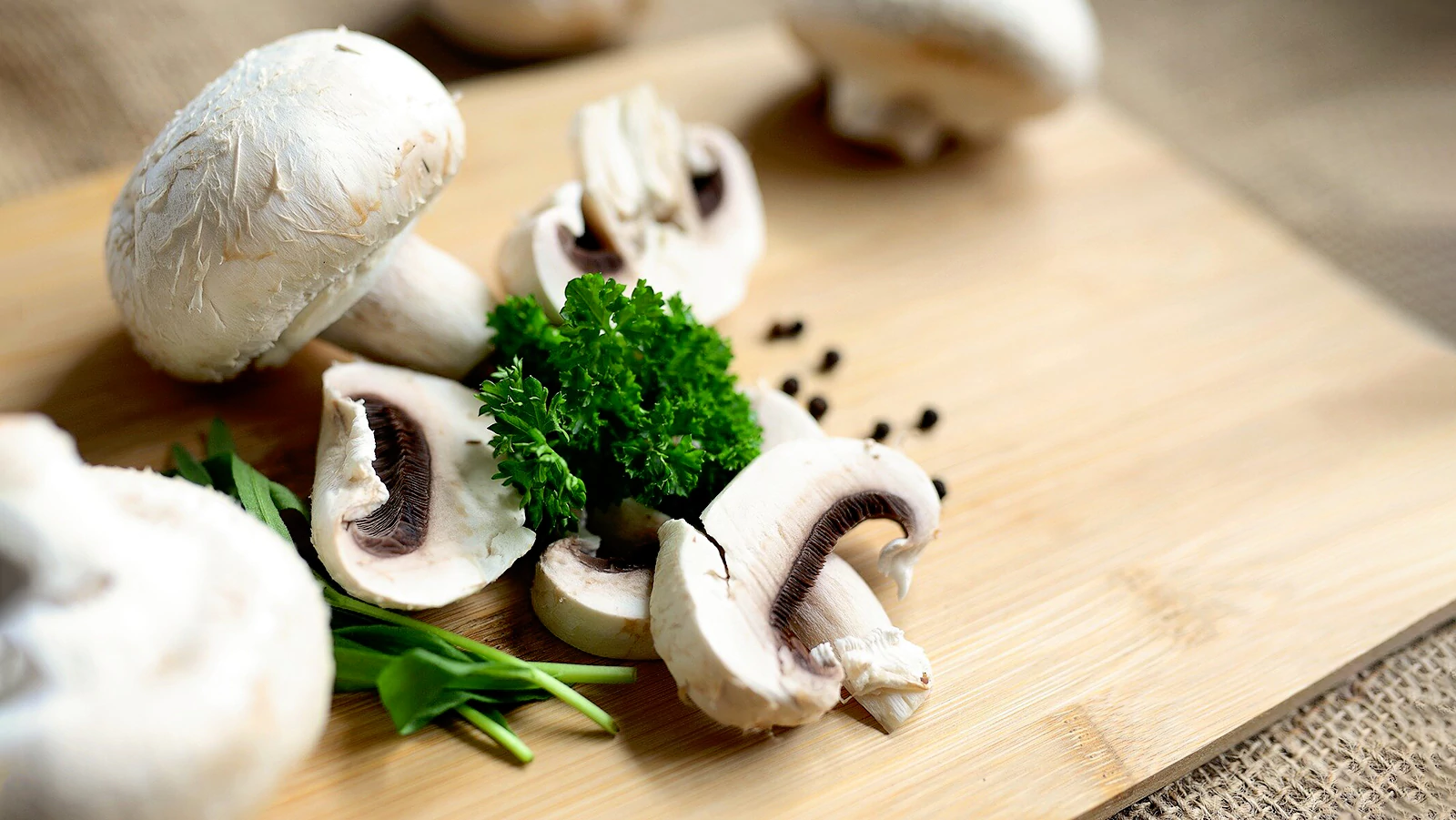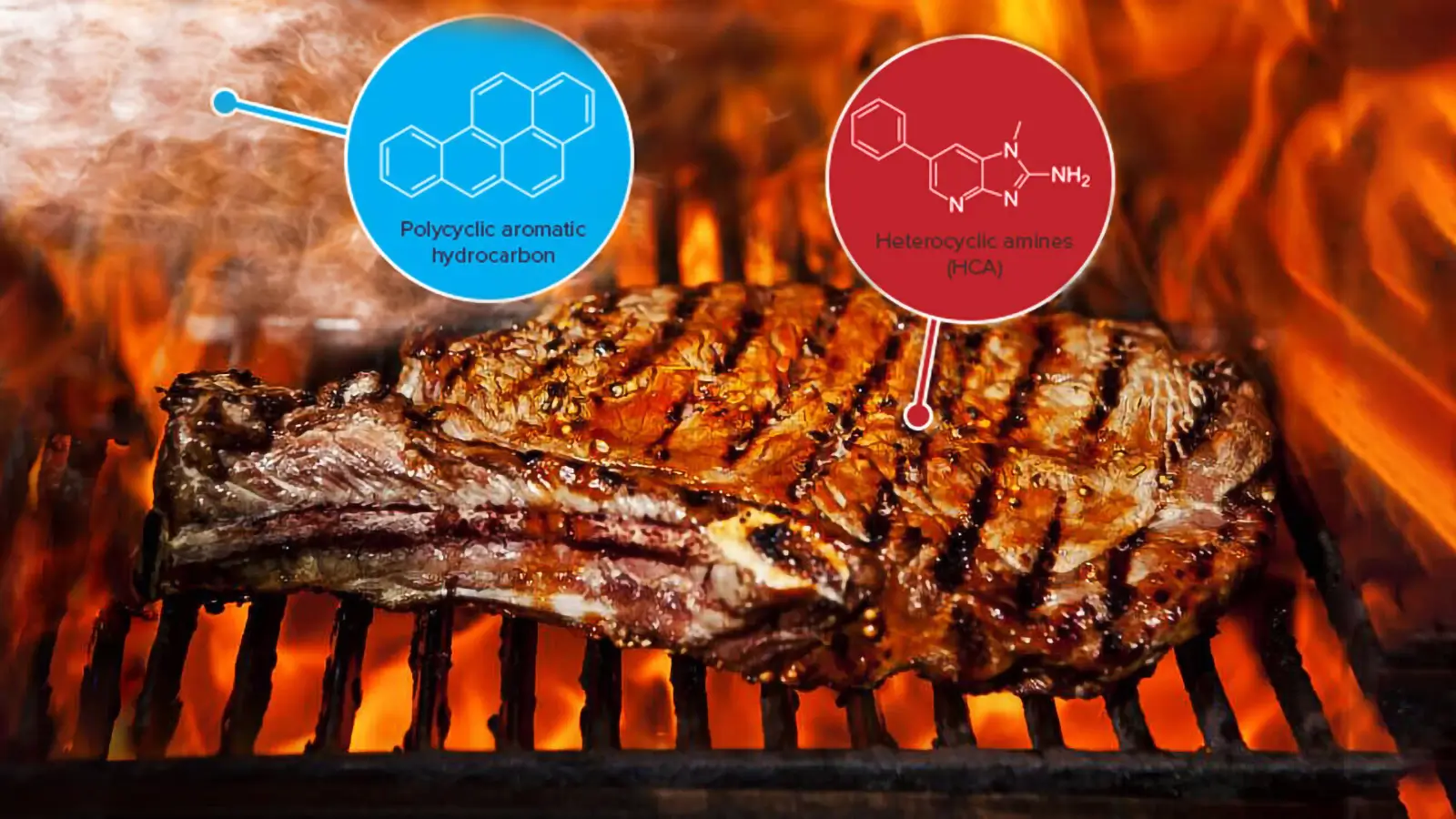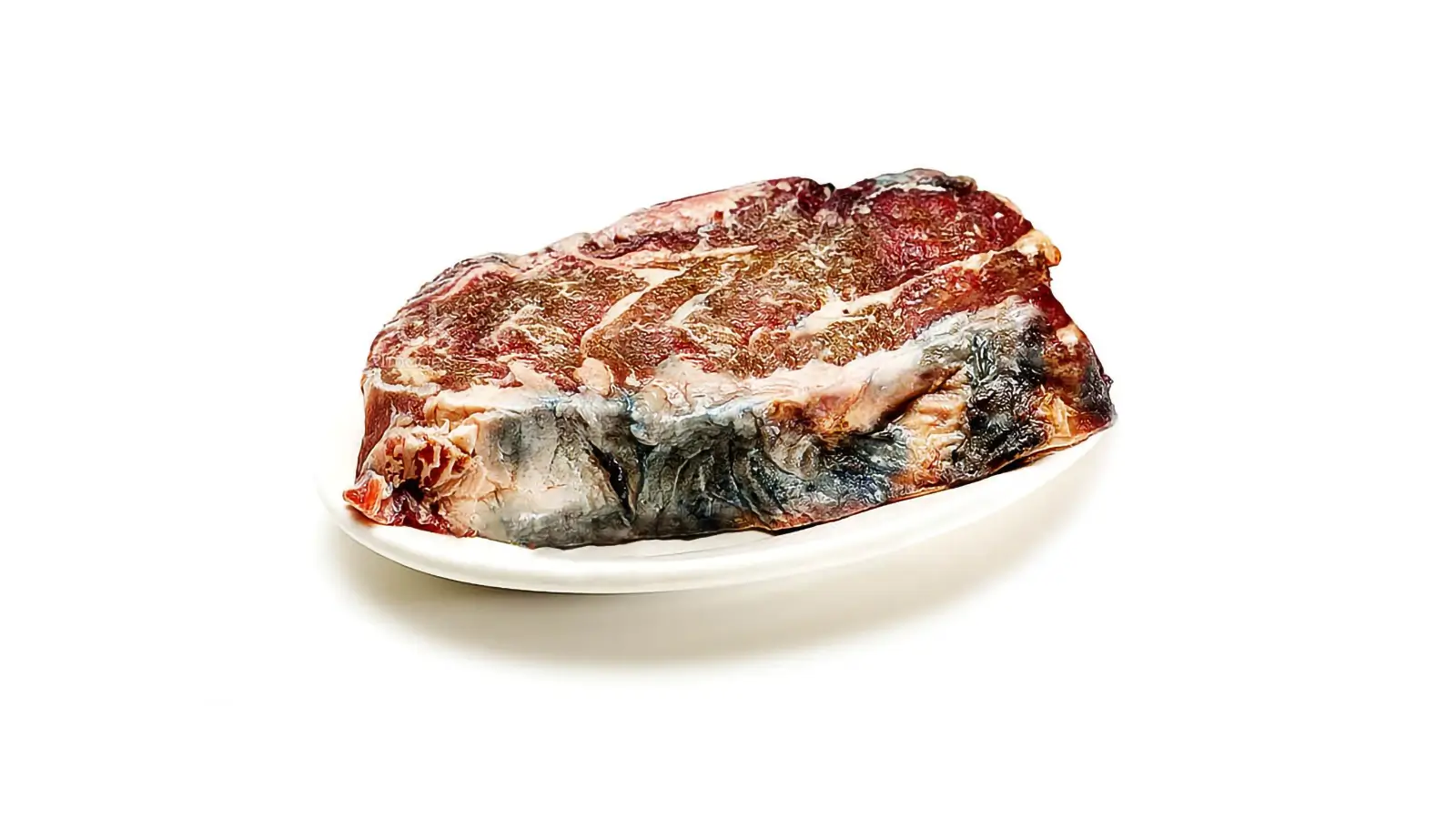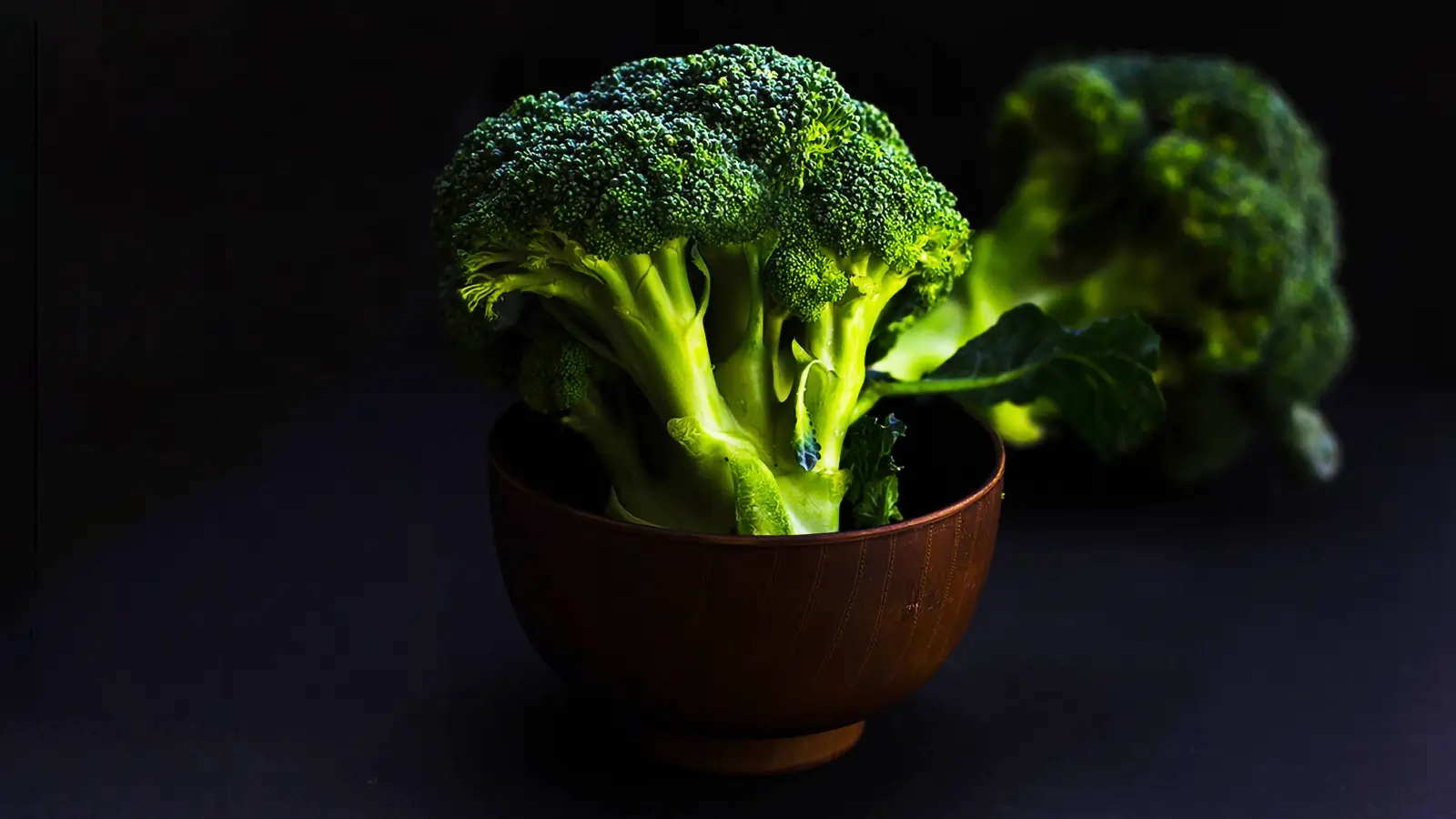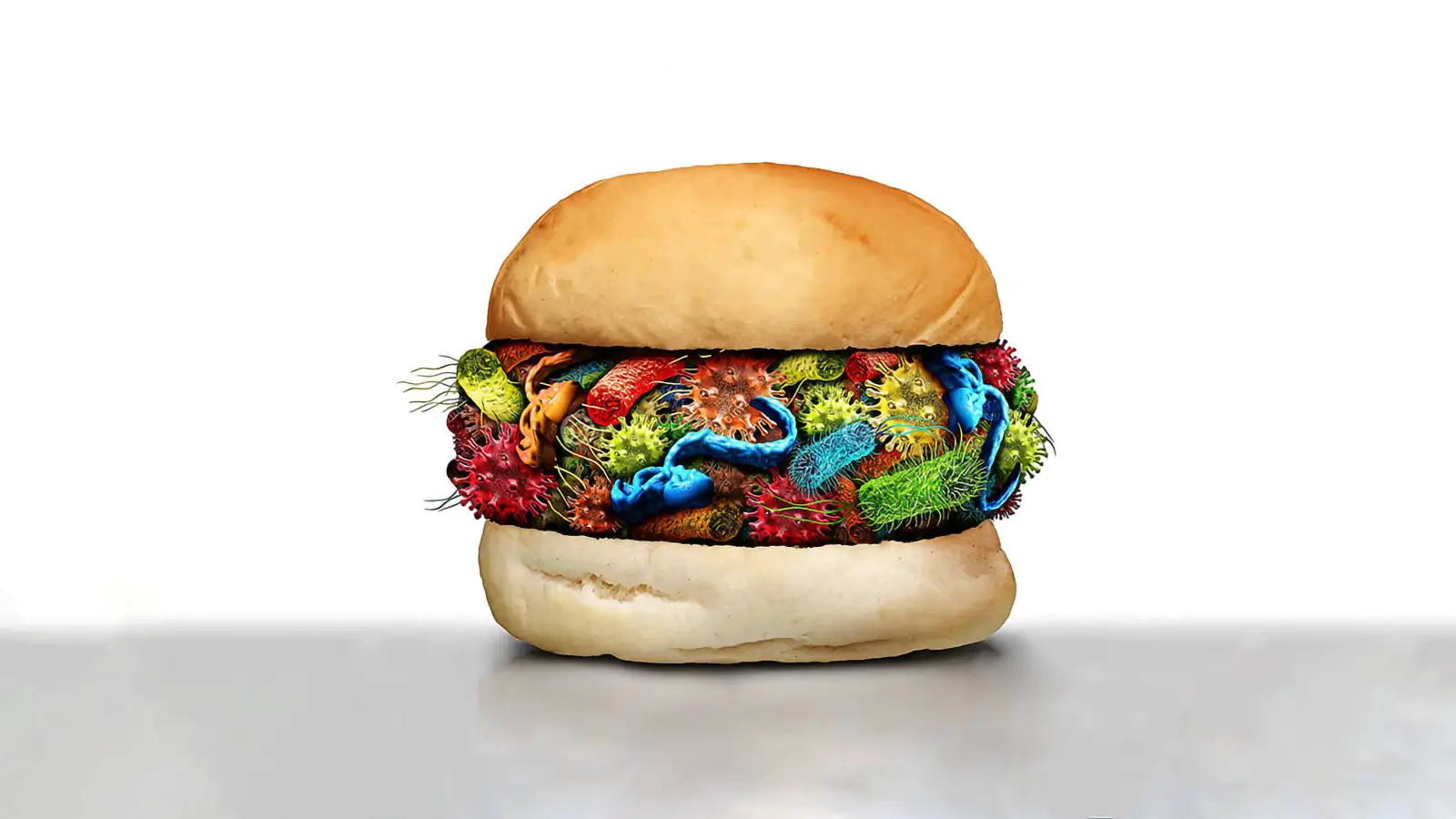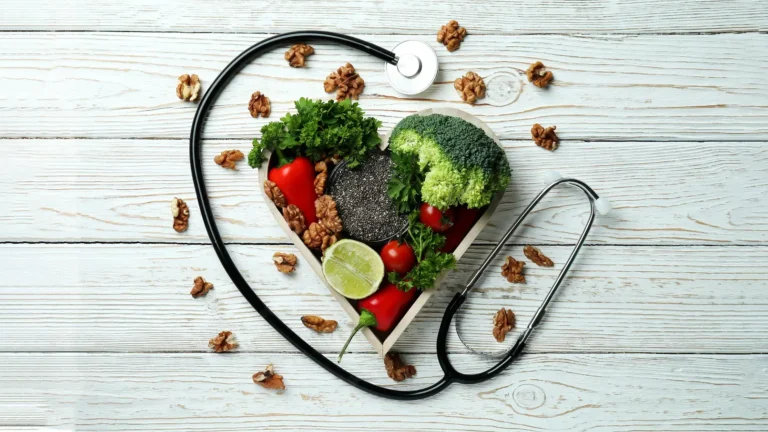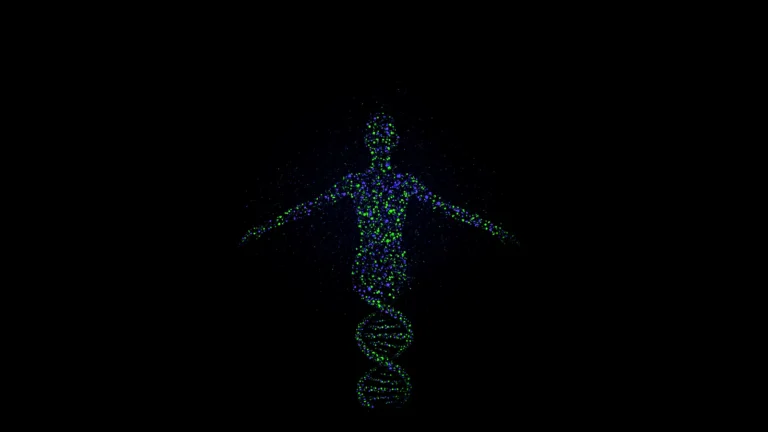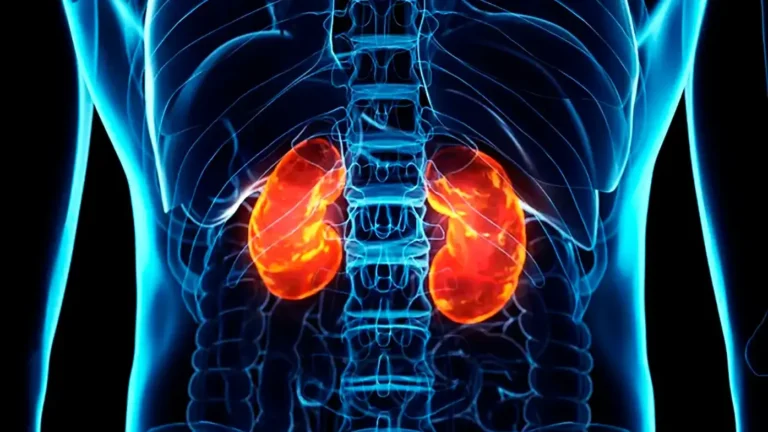Acrylamide exposure- Chips, fries, and cancer
Acrylamide is classified as a Group 2A human carcinogen. In 2002 it was discovered in extremely high concentrations in potato chips and French fries.
Milos Pokimica
Written By: Milos Pokimica
Medically Reviewed by: Dr. Xiùying Wáng, M.D.
Updated June 9, 2023Acrylamide is a primarily industrial chemical that has been used in many industrial processes, such as the production of plastics, dyes, and paper. It is additionally utilized in the treatment of wastewater, sewage, and the treatment of drinking water as well. It is also found in many consumer products, such as adhesives, food packaging, and caulking.
In the US acrylamide is classified as a Group 2A carcinogen and as an extremely hazardous substance. Because of its toxic nature, businesses that have any use of it are subject to strict reporting requirements.
In 2002 it was discovered in extremely high concentrations in potato chips and French fries.
The concentrations were so high that these two types of food would be banned for children in any normal circumstances. It was also discovered, just not at the same extreme level, but still in the toxic range in all other starchy foods that had been heated higher than 120 °C (248 °F).
Such as bread for example.
There was no detectable level in foods that were not heated or that were boiled. What happened was that the calculated level of average acrylamide intake was not at the level that posed a risk for negative effects on the nervous system and fertility and from this, it was concluded that acrylamide levels in food were safe regarding the nervous system. However, the synergistic effect that it might have with other environmental toxins was not calculated, or any studies have been done on that subject either. Only concerns were raised on acrylamide human carcinogenicity based on known carcinogenicity in laboratory animals. Rodent studies had associated acrylamide exposure with risk for several types of cancer.
Evidence from human studies linked it to kidney cancer, breast cancer, endometrial cancer, ovarian, and prostate cancer.
So what does the heating do to produce acrylamide? There is an amino acid (a building block of proteins) named asparagine. It is found in any type of protein including vegetable proteins as well. Some varieties of potatoes have a higher amount of it than any other known food product.
When high temperatures start to heat asparagine in the presence of certain starches or sugars, there is a chemical reaction that turns asparagine into acrylamide. To lower the exposure if you care about doing so, you can use low-temperature cooking methods like boiling and microwaving. High-temperature cooking methods, such as baking, frying, or broiling, will produce acrylamide depending on the concentrations of the amino acid itself, and concentration of starches, and the temperature and duration of cooking.
Longer cooking times increase acrylamide production when the cooking temperature is above 120 degrees Celsius.
No animals in nature do things to food as frying. It is an unnatural process, and because it is a new invention concerning evolution, we do not have adequate deface against its toxicity. Once ingested, acrylamide is processed through the cytochrome P450 enzyme system and converted into glycidamide, and detoxified. Even though our metabolic pathways can help us to detoxify it by some measure, nonetheless, we can still burden our liver detox capability to the level that it will not be able to do its job in time.
Eating many chips for example especially if you are a young child can overstress these pathways of detoxification and put you at health risk from excess exposure to this substance. It is possible that our hominin ancestors had been exposed to this chemical because we do have cytochrome P450 enzyme system and Homo erectus may have been roasting some of the starch-rich vegetables, but it is unlikely that they have been exposed to it in the excessive levels as we are today.
Frying destroys the molecular consistency of many molecules that are in the food. The problem arises when amino acids that are building blocks of our own proteins and cells get damaged. If the damage is partial our bodies will integrate these damaged amino acids into our cells not realizing that they are actually damaged. This will, in consequence, have a mutagenic and cancerogenic effect. Frying and baking also destroy oils that are not thermostable (omega 3 6 9) forcing them to oxidase and to go rancid and cancerogenic too. Some studies show a significant correlation between fried food and some types of cancer. If you have cancer, it would be logical to avoid any food processing except boiling. The list of toxic and cancer-promoting chemicals that can be created in high temperatures is extensive.
If you want to avoid acrylamide then no toasted grains, no potato chips, no French fries, no toasted wheat cereals, no cookies and crackers, no roasted grain-based coffee substitutes, no roasted cocoa beans (and chocolate, Nutella, and other cocoa made stuff). Some canned black pitted olives can also fall into this higher-risk category regarding acrylamide exposure.
Tolerable instances are set to 2,6 micrograms per kilogram of body weight. For a 70kg human, it is 182 micrograms. For children, it is much less than that. And I will argue that the limit is set high deliberately. Setting this limit lower will mean mandatory legal recall of a wide variety of food items we have in our stores and restaurants. McDonald’s large fries have 82 micrograms. Even at the current allowed level, it will be required for example to legally restrict the selling of McDonald’s large fries to children under 35 kg. If you want to decrease your exposure to dietary acrylamide, you will need to restrict your intake of the above foods.
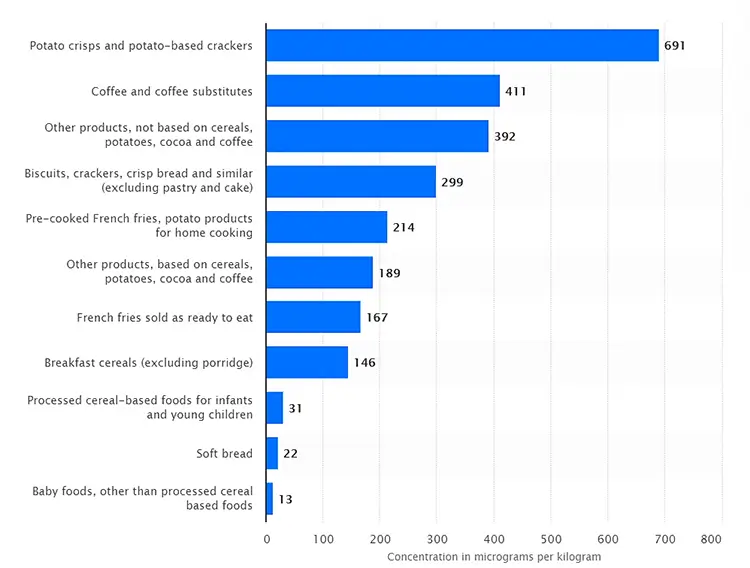
The average concentration of acrylamide found in food products in the United Kingdom (UK) in 2015(in micrograms per kilogram).
Published by Statista Research Department, Aug 1, 2016
However, again we are forgetting something.
Any food that is fried or baked will have a similar reaction. Not just a starchy one. If we eat animal products, the same process will happen just other chemicals will get formed. It is an unnatural activity. I already mention the harmane and essential tremor connection. Polycyclic aromatic hydrocarbons (PAHs) and heterocyclic amines (HCAs) are formed when any animal tissue not just muscle meats, no matter from what species, is prepared using high-temperature cooking. Grilling directly over an open flame or pan-frying results in the creation of 17 different heterocyclic amines (HCAs). HCAs and PAHs are proven human carcinogens among other things. Heterocyclic describes just the shape but they are still amino acids with damaged molecular structure caused by the process of heating and the body does not fully recognize them as damaged. In studies in rodents, feeding them with HCAs resulted in the development of cancers in a couple of different organs including the prostate, breast, and colon.
In the lifetime of exposure to all of the other toxins and mutagens in an environment adding more is not a good idea. Thousands of different toxins that our liver has to detoxify might not be cancerogenic, but the load itself is what in our new environment is problematic. In the clean nature of our past where we evolved in pristine conditions without pollution, our bodies still had to deal with some of the naturally occurring toxins, but we were not overloaded with other chemicals that we are loaded with now. Therefore, in our new habitat, we have to think to lower the exposure to every toxin we can because we could not lower them all. However, what we can evade we should, and even toxins that are not deadly should be avoided to lower our overload. The overloaded liver will let some of the more dangerous toxins accumulate and do damage to our cells because it has too much work to deal with, sort of speaking. Going low on the food chain, eating organic, avoiding preservatives, avoiding too much frying and baking, avoiding natural toxins, and drinking clean water is just the start.
References:
Passages selected from a book: Pokimica, Milos. Go Vegan? Review of Science Part 1. Kindle ed., Amazon, 2018.
- Lineback, David R et al. “Acrylamide in foods: a review of the science and future considerations.” Annual review of food science and technology vol. 3 (2012): 15-35. doi:10.1146/annurev-food-022811-101114
- Michalak, Joanna et al. “Acrylamide and Thermal-Processing Indexes in Market-Purchased Food.” International journal of environmental research and public health vol. 16,23 4724. 27 Nov. 2019, doi:10.3390/ijerph16234724
- Chen, Ming-Jen et al. “A statistical regression model for the estimation of acrylamide concentrations in French fries for excess lifetime cancer risk assessment.” Food and chemical toxicology : an international journal published for the British Industrial Biological Research Association vol. 50,10 (2012): 3867-76. doi:10.1016/j.fct.2012.07.010
- Lipworth, Loren et al. “Review of epidemiologic studies of dietary acrylamide intake and the risk of cancer.” European journal of cancer prevention : the official journal of the European Cancer Prevention Organisation (ECP) vol. 21,4 (2012): 375-86. doi:10.1097/CEJ.0b013e3283529b64
- Stott-Miller, Marni et al. “Consumption of deep-fried foods and risk of prostate cancer.” The Prostate vol. 73,9 (2013): 960-9. doi:10.1002/pros.22643
- Hogervorst, Janneke G et al. “Dietary acrylamide intake and the risk of renal cell, bladder, and prostate cancer.” The American journal of clinical nutrition vol. 87,5 (2008): 1428-38. doi:10.1093/ajcn/87.5.1428
Related Posts
Do you have any questions about nutrition and health?
I would love to hear from you and answer them in my next post. I appreciate your input and opinion and I look forward to hearing from you soon. I also invite you to follow us on Facebook, Instagram, and Pinterest for more diet, nutrition, and health content. You can leave a comment there and connect with other health enthusiasts, share your tips and experiences, and get support and encouragement from our team and community.
I hope that this post was informative and enjoyable for you and that you are prepared to apply the insights you learned. If you found this post helpful, please share it with your friends and family who might also benefit from it. You never know who might need some guidance and support on their health journey.
– You Might Also Like –

Learn About Nutrition
Milos Pokimica is a doctor of natural medicine, clinical nutritionist, medical health and nutrition writer, and nutritional science advisor. Author of the book series Go Vegan? Review of Science, he also operates the natural health website GoVeganWay.com
Medical Disclaimer
GoVeganWay.com brings you reviews of the latest nutrition and health-related research. The information provided represents the personal opinion of the author and is not intended nor implied to be a substitute for professional medical advice, diagnosis, or treatment. The information provided is for informational purposes only and is not intended to serve as a substitute for the consultation, diagnosis, and/or medical treatment of a qualified physician or healthcare provider.NEVER DISREGARD PROFESSIONAL MEDICAL ADVICE OR DELAY SEEKING MEDICAL TREATMENT BECAUSE OF SOMETHING YOU HAVE READ ON OR ACCESSED THROUGH GoVeganWay.com
NEVER APPLY ANY LIFESTYLE CHANGES OR ANY CHANGES AT ALL AS A CONSEQUENCE OF SOMETHING YOU HAVE READ IN GoVeganWay.com BEFORE CONSULTING LICENCED MEDICAL PRACTITIONER.
In the event of a medical emergency, call a doctor or 911 immediately. GoVeganWay.com does not recommend or endorse any specific groups, organizations, tests, physicians, products, procedures, opinions, or other information that may be mentioned inside.
Editor Picks –
Milos Pokimica is a health and nutrition writer and nutritional science advisor. Author of the book series Go Vegan? Review of Science, he also operates the natural health website GoVeganWay.com
Latest Articles –
Top Health News — ScienceDaily
- The overlooked nutrition risk of Ozempic and Wegovyon February 4, 2026
Popular weight-loss drugs like Ozempic and Wegovy can dramatically curb appetite, but experts warn many users are flying blind when it comes to nutrition. New research suggests people taking these medications may not be getting enough guidance on protein, vitamins, and overall diet quality, increasing the risk of muscle loss and nutrient deficiencies.
- A 25-year study found an unexpected link between cheese and dementiaon February 4, 2026
A massive Swedish study tracking nearly 28,000 people for 25 years found an unexpected link between full-fat dairy and brain health. Among adults without a genetic risk for Alzheimer’s, eating more full-fat cheese was associated with a noticeably lower risk of developing the disease, while higher cream intake was tied to reduced dementia risk overall. The findings challenge decades of low-fat dietary advice but come with important caveats.
- MIT’s new brain tool could finally explain consciousnesson February 4, 2026
Scientists still don’t know how the brain turns physical activity into thoughts, feelings, and awareness—but a powerful new tool may help crack the mystery. Researchers at MIT are exploring transcranial focused ultrasound, a noninvasive technology that can precisely stimulate deep regions of the brain that were previously off-limits. In a new “roadmap” paper, they explain how this method could finally let scientists test cause-and-effect in consciousness research, not just observe […]
- Why heart disease risk in type 2 diabetes looks different for men and womenon February 4, 2026
Scientists are digging into why heart disease risk in type 2 diabetes differs between men and women—and sex hormones may be part of the story. In a large Johns Hopkins study, men with higher testosterone had lower heart disease risk, while rising estradiol levels were linked to higher risk. These hormone effects were not seen in women. The results point toward more personalized approaches to heart disease prevention in diabetes.
- Sound machines might be making your sleep worseon February 4, 2026
Sound machines may not be the sleep saviors many believe. Researchers found that pink noise significantly reduced REM sleep, while simple earplugs did a better job protecting deep, restorative sleep from traffic noise. When pink noise was combined with outside noise, sleep quality dropped even further. The results suggest that popular “sleep sounds” could be doing more harm than good—particularly for kids.
- This unexpected plant discovery could change how drugs are madeon February 3, 2026
Plants make chemical weapons to protect themselves, and many of these compounds have become vital to human medicine. Researchers found that one powerful plant chemical is produced using a gene that looks surprisingly bacterial. This suggests plants reuse microbial tools to invent new chemistry. The insight could help scientists discover new drugs and produce them more sustainably.
- A hidden cellular process may drive aging and diseaseon February 3, 2026
As we age, our cells don’t just wear down—they reorganize. Researchers found that cells actively remodel a key structure called the endoplasmic reticulum, reducing protein-producing regions while preserving fat-related ones. This process, driven by ER-phagy, is tied to lifespan and healthy aging. Because these changes happen early, they could help trigger later disease—or offer a chance to stop it.
PubMed, #vegan-diet –
- Diet type and the oral microbiomeon February 2, 2026
CONCLUSION: The diet-oral microbiome-systemic inflammation axis is bidirectional and clinically relevant. Understanding both direct ecological regulation and indirect metabolic effects is essential to support precision nutrition strategies aimed at maintaining oral microbial balance and systemic inflammatory risk mitigation.
- Consensus document on healthy lifestyleson January 22, 2026
Proteins are a group of macronutrients that are vital to our lives, as they perform various functions, including structural, defensive and catalytic. An intake of 1.0-1.2 g/kg/body weight per day would be sufficient to meet our needs. Carbohydrate requirements constitute 50 % of the total caloric value and should be obtained mainly in the form of complex carbohydrates. In addition, a daily intake of both soluble and insoluble fiber is necessary. Regular consumption of extra virgin olive oil […]
- Vitamin B12 and D status in long-term vegetarians: Impact of diet duration and subtypes in Beijing, Chinaon January 21, 2026
CONCLUSIONS: This study reveals a dual challenge among Beijing long-term vegetarians: vitamin B12 deficiency was strongly associated with the degree of exclusion of animal products from the diet (veganism), while vitamin D deficiency was highly prevalent and worsened with longer diet duration. The near-universal vitamin D deficiency observed in this study suggests that, in the Beijing context, the risk may extend beyond dietary choice, potentially reflecting regional environmental factors;…
- Nutritional evaluation of duty meals provided to riot police forces in Germanyon January 13, 2026
Background: The primary role of the German riot police is maintaining internal security. Due to challenging working conditions, riot police forces face an elevated risk of various diseases. During duty, forces are provided with meals. A balanced diet can reduce the risk of some of these diseases and contribute to health-promoting working conditions. Aim: First evaluation of the nutritional quality of duty meals in Germany based on German Nutrition Society recommendations (DGE). Methods: In…
- Iodineon January 1, 2006
Iodine is an essential trace nutrient for all infants that is a normal component of breastmilk. Infant requirements are estimated to be 15 mcg/kg daily in full-term infants and 30 mcg/kg daily in preterm infants.[1] Breastmilk iodine concentration correlates well with maternal urinary iodine concentration and may be a useful index of iodine sufficiency in infants under 2 years of age, but there is no clear agreement on a value that indicates iodine sufficiency, and may not correlate with […]
Random Posts –
Featured Posts –
Latest from PubMed, #plant-based diet –
- From paddy soil to dining table: biological biofortification of rice with zincby Lei Huang on February 4, 2026
One-third of paddy soils are globally deficient in zinc (Zn) and 40% of Zn loss in the procession from brown rice to polished rice, which results in the global issue of hidden hunger, e.g., the micronutrient deficiencies in the rice-based population of developing countries. In the recent decades, biofortification of cereal food crops with Zn has emerged as a promising solution. Herein, we comprehensively reviewed the entire process of Zn in paddy soil to human diet, including the regulatory…
- Molecular Characterization of Tobacco Necrosis Virus A Variants Identified in Sugarbeet Rootsby Alyssa Flobinus on February 3, 2026
Sugarbeet provides an important source of sucrose; a stable, environmentally safe, and low-cost staple in the human diet. Viral diseases arising in sugarbeet ultimately impact sugar content, which translates to financial losses for growers. To manage diseases and prevent such losses from occurring, it is essential to characterize viruses responsible for disease. Recently, our laboratory identified a tobacco necrosis virus A variant named Beta vulgaris alphanecrovirus 1 (BvANV-1) in sugarbeet…
- Nutrition in early life interacts with genetic risk to influence preadult behaviour in the Raine Studyby Lars Meinertz Byg on February 3, 2026
CONCLUSIONS: Nutrition in early life and psychiatric genetic risk may interact to determine lasting child behaviour. Contrary to our hypothesis, we find dietary benefits in individuals with lower ADHD PGS, necessitating replication. We also highlight the possibility of including genetics in early nutrition intervention trials for causal inference.
- Effect of the gut microbiota on insect reproduction: mechanisms and biotechnological prospectsby Dilawar Abbas on February 2, 2026
The insect gut microbiota functions as a multifunctional symbiotic system that plays a central role in host reproduction. Through the production of bioactive metabolites, gut microbes interact with host hormonal pathways, immune signaling, and molecular regulatory networks, thereby shaping reproductive physiology and fitness. This review summarizes recent advances in understanding how gut microbiota regulate insect reproduction. Accumulating evidence demonstrates that microbial metabolites…
- Rationale and design of a parallel randomised trial of a plant-based intensive lifestyle intervention for diabetes remission: The REmission of diabetes using a PlAnt-based weight loss InteRvention…by Brighid McKay on February 2, 2026
CONCLUSIONS: This trial will provide high-quality clinical evidence on the use of plant-based ILIs to address the epidemics of obesity and diabetes to inform public health policies and programs in Canada and beyond.
- Diet type and the oral microbiomeby Daniel Betancur on February 2, 2026
CONCLUSION: The diet-oral microbiome-systemic inflammation axis is bidirectional and clinically relevant. Understanding both direct ecological regulation and indirect metabolic effects is essential to support precision nutrition strategies aimed at maintaining oral microbial balance and systemic inflammatory risk mitigation.
